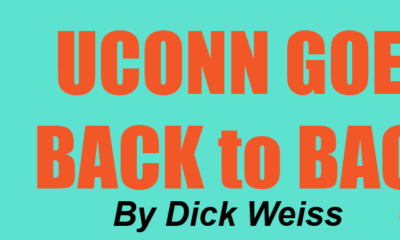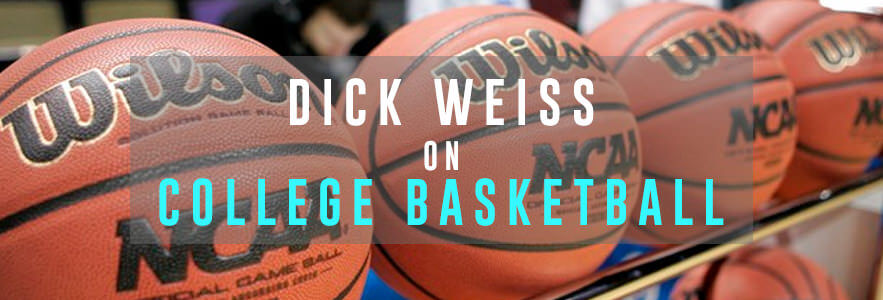
LAS VEGAS, Nev.– The Ed O’Bannon class action lawsuit against the NCAA, EA Sports and Collegiate Licensing is starting to percolate and has the potential to cause seismic change in landscape of college athletics.
When the former UCLA star and his fellow plaintiffs, who did not understand why he wasn’t being paid when the NCAA and EA used their likeness in videos and video games, filed a class action suit in 2009 under anti-trust and right of publicity for a share of the profits, which is rumored to be worth at least $21 billion.
The NCAA objected to the claim. They likely figured, even if the case went to court and a worst case scenario occurred, they could still settle with the 1,400 former players for a modest sum and promise never to trade on their likeness again. The settlement might be expensive but wouldn’t result in bankruptcy.
Since then, the plaintiffs filed a motion on behalf of former and current college athletes, claiming they should receive 50 percent of the revenue generated. Judge Claudia Wilkins of the California Northern District Court has changed the playing field in June when she ruled college athletes could join the suit and that athletes could go after a cut of the money the NCAA and the conferences receive for broadcast rights to college sporting events.
This past week, Clemson senior corner back Darius Robinson and five other players added their names to a group of 16 former college football and basketball players including Hall of Famers Oscar Robertson and Bill Russell who have joined to suit. Robinson, in an interview with Sports Illustrated, said he could see a striking resemblance between himself and a certain senior corner back in the NCAA Football ’14 games recently released by EA Sports. ..
“That’s me all the way,” Robinson told SI after attorneys filed an amended complaint to the case, which is being tried in federal court in Oakland. “Size, ratings, I don’t have the best hands as a corner, so I always drop interceptions in a video game. .
Robinson is happy about his scholarship, which pays for tuition room and board, but is disturbed athletes do not own their name and face. He is also disturbed the NCAA had ruled he could work in a retail store but couldn’t start up his own independent business– in this case 5LINX, an Amway type marketing company selling mobile plans– or promote it to make extra money. He dropped the idea.
Robinson still plans to play football for Clemson but he has hooked on with the plaintiffs’ attorneys– who are led by Washington, D.C. based Michael Hausfield. Hausfield’s group has also signed up Arizona linebacker Jake Fischer, Arizona kicker Jake Smith, Vanderbilt linebacker Chase Garnham, Minnesota tight end Moses Alipate and Minnesota linebacker Victor Keise.
It took courage for these players to take on the NCAA. But they have plenty of support and financial ammunition. The plaintiffs have a huge legal team that has sunk millions into this case because the attorneys see the NCAA and the schools and conferences that run major college sports as a soulless corporate giant who has abused its student-athletes by valuing their images as zero.
The NCAA will argue that if the court forces the colleges to give more to players in the revenue sports — football and men’s basketball– it will leave less money to support non-revenue sports such as volleyball, soccer and swimming and a victory for the plaintiffs or a settlement could force schools to cut sports or turn them into club teams.
“College sports today are valued by the student-athletes who compete and all of us who support them,” Donald Remy, the NCAA’s vice president for legal affairs, said in a statement. “However, the plaintiffs’ lawyers in the likeness case now want to make this about professionalizing a few current student-athletes to the detriment of all others. Their scheme to pay a small number of student-athletes threatens college sports as we know it.
“In particular, we would lose the very real opportunity for at least 96% of NCAA male and female student-athletes who do not compete in Division I men’s basketball or FBS football to play a sport and get an education, as they do today.”
There is a lot at stake here and the NCAA is rightfully concerned. It has already made a pre-emptive decision not to enter a new contract for the license of its name and logo for the EA Sports NCAA football video game. The current contract expires in June, 2014, but the NCAA said in a release it’s timing was based on the need to provide EA notice for future planning. The NCAA said it is confident in its legal opposition regarding trademarks in video games. But given the current business climate and cost of litigation, it has determined participating in this video game in not in its best interests.
The NCAA further said it has never licensed the use of current student-athlete names, images or likenesses to EA. The NCAA may realize that it will not be able to collect licensing fees from EA much longer without sharing the revenues with student-athletes and any licensing fees the NCAA continues to collect could only increase the plaintiff’s damage claims. A loss in court would open the door for college athletes to collect a healthy split of revenue but would also strike at the heart of the NCAA’s amateurism rule, which was created to give institutions tax exempt status and prevent them from being charged property taxes. According to the NCAA, a student athlete– unlike normal students– can’t be an employee. If they are viewed as such by the courts, taxation and worker’s compensation come into play.
If I were the NCAA, I might have settled for a modest cut of the profits long before we reached this potential nuclear meltdown. But it appears to be too late for that.
USC AD Pat Haden, a former practicing attorney, said recently he was concerned the NCAA might lose and is encouraging conferences to start discussing contingencies.
“It’s not a slam dunk for the NCAA,” he said. “If they lose, all of a sudden your television revenue — let’s say it’s $20 million a year [for a school]. Now if they win, it’s $10 million a year. How do you make your 21 sports work on half the revenue?”
The scheduled trial date is 2014 and the plaintiffs don’t appear to be in a mood to settle for pennies on the dollar.
Dick Weiss is a sportswriter and columnist who has covered college football and college and professional basketball for the Philadelphia Daily News and the New York Daily News. He has received the Curt Gowdy Award from the Naismith Basketball Hall of Fame and is a member of the national Sportswriters Hall of Fame. He has also co-written several books with Rick Pitino, John Calipari, Dick Vitale and authored a tribute book on Duke coach Mike Krzyzewski.

Latest Articles
-
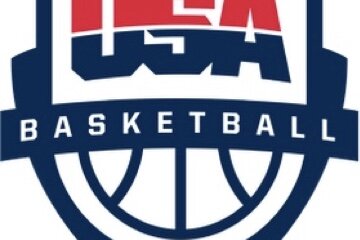

Christopher Lawlor
/ 3 hours agoTwenty-Six Athletes Expected to Participate in USA Basketball Women’s U18 National Team Trials that begin on May 15
COLORADO SPRINGS, Colo. — USA Basketball announced 26 athletes expected to participate in the...
-
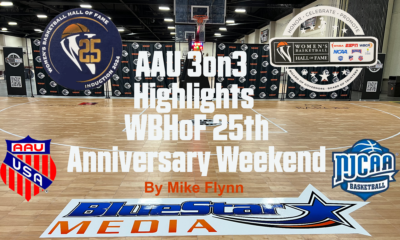

Basketball
/ 3 days agoAAU 3on3 Highlights WBHoF 25th Anniversary Weekend
KNOXVILLE – The 25th anniversary weekend celebration of the Women’s Basketball Hall of Fame...
By Mike Flynn -


Christopher Lawlor
/ 7 days agoGONE PRO: Blue Star Media Elite 25 football rankings’ regulars Bishop Gorman (NV) and IMG Academy (FL) lead 2024 NFL Draft with three selections apiece
BENSALEM, Pa. – One of the greatest three day stretches annually in professional sports...
-
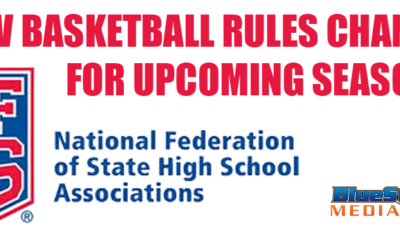

Basketball
/ 1 week agoREVISIONS: National Federation of State High School Associations announce rule changes for upcoming season; flopping will incur a technical foul
BENSALEM, Pa. – Floppers, beware, you will be warned once before being issued a...
